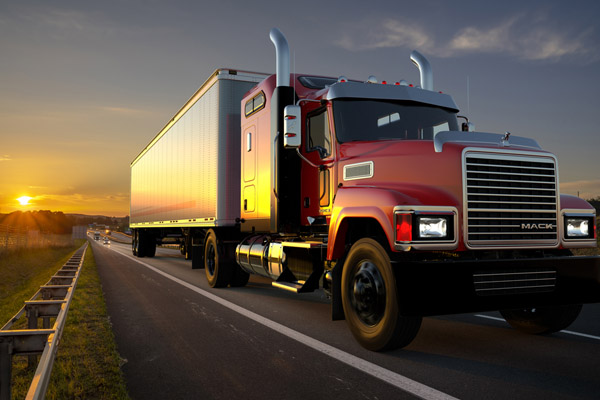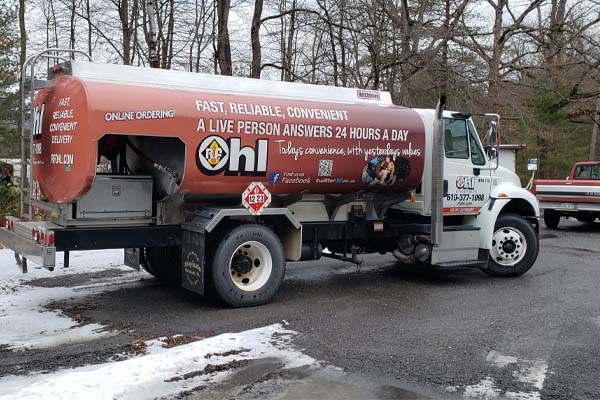Distinguishing Between On-Road and Off-Road Diesel: Understanding the Differences

Diesel fuel boasts a versatile array of uses. Thanks to its impressive compression traits, it’s an ideal choice for internal combustion engines that ignite without requiring a spark. Originating from multiple sources such as petroleum and biomass, many regions have set standards for diesel to maintain its quality and eco-friendliness. It’s crucial to understand the distinction between on-road vs off-road diesel types, both for proper utilization and to adhere to regulations. In this article, we delve into the comparison of on-road and off-road diesel, highlighting what sets them apart and where they are similar.
On-Road Vs. Off-Road Diesel: What Are Their Differences?
Continue on as we guide you through the nuances and distinctions between these two fuel variants.
What Is On-Road Diesel?

True to its name, this fuel is designated for vehicles traveling on public highways and roads, primarily used for transportation. Available at most gas stations, this clear liquid is sometimes referred to as “green diesel.” However, the term isn’t about any dye but emphasizes the renewable and environmentally friendly aspects of the fuel.
Drivers can gauge the age and quality of the fuel based on its appearance. A luminous liquid is a sign of fresh fuel that’s in optimal condition. Aged on-road diesel might not perform as well and can lead to various complications. It’s wise to find suppliers who consistently provide top-notch fuel.
What is Off-Road Diesel?

Off-road diesel is tailored for agricultural and industrial purposes, fueling farms, factories, and construction zones. These locations often use stationary diesel-powered machines to boost their work rate and effectiveness. While they might have vehicles, they typically don’t venture onto public roads.
Some households also opt for off-road diesel as a heating solution during colder months. Both federal and state regulations outline who can use this fuel and detail its tax implications. To distinguish off-road from on-road diesel, refineries infuse it with a red dye, specifically Solvent Red 26 and 164, which remain detectable even in trace amounts.
The Common Ground Between Both Fuel Types
Despite their distinct applications, the two diesel types share more in common than not. Chemically speaking, both on-road and off-road diesel have the same composition. They’re interchangeable in diesel engines, producing equivalent outcomes. If farms or factories ever deplete their off-road diesel supply, they can temporarily resort to the on-road type, though they’d typically revert to save on expenses.
Conversely, vehicles can, in theory, operate using off-road diesel. Yet, this practice is not recommended owing to legal restrictions. It’s imperative for drivers to adhere to regulations to sidestep complications. Violations, such as using red-dyed fuel in unauthorized scenarios, can result in hefty fines by officials.
Distinguishing Off-Road from On-Road Diesel: Key Differences
Some of the distinctions of on-road vs off-road diesel types include the following:
Taxation

A significant distinction between the two is the tax imposed. On-road diesel typically carries higher taxes, with the collected revenue channeled towards the upkeep and development of road infrastructure. Since vehicles on public roads contribute to their degradation, drivers indirectly finance road maintenance through these levies, ensuring roads remain in good condition.
While federal tax remains consistent nationwide, state taxes can vary based on local regulations. Some states levy taxes based on the quantity of fuel bought, while others might tax based on the total expenditure. In contrast, off-road diesel is exempt from these taxes due to its distinct uses.
Color
Given that the chemical makeup of both on-road and off-road diesel is the same, a different method is required for differentiation. Color serves as the simplest indicator. A quick glance allows officials to determine the fuel type in a tank.
If there’s suspicion of non-compliance, officials have the authority to pull over drivers and inspect the fuel tank. They might take a minor sample or examine the fuel filter to verify the fuel’s hue. For on-road purposes, the diesel should be transparent. Using red-dyed diesel in a personal vehicle could lead to penalties reaching $10,000. Adhering to regulations is essential to prevent such troubles.
Cost
The allure of using red diesel in vehicles often stems from its cost advantage. With added taxes on on-road diesel, it tends to be pricier than its off-road counterpart, sometimes by as much as 25 cents a gallon. This price difference can lead to substantial savings over time for frequent long-haul drivers. However, the looming threat of significant penalties should deter individuals from taking this risk. The potential fines can far outweigh any short-term savings.
Usage
By legal design, off-road diesel has restricted applications. In construction, it fuels heavy machinery such as cranes, loaders, rollers, compactors, and various excavation equipment. In agriculture, it energizes tractors, harvesters, irrigation systems, and other essential farm machinery. This equipment enhances efficiency and minimizes labor reliance, ultimately aiding in revenue growth. Some jurisdictions permit vehicles to run on off-road diesel, but only if operated solely on private land. Conversely, on-road diesel is the go-to for vehicles like cars, SUVs, and light trucks that frequently navigate public roads.
Distribution

On-road diesel is readily available for drivers. Easily accessible at numerous fuel stations dotting highways and cities, its ubiquity offers convenience even with its premium price tag. In certain states, long-distance truckers possessing a valid tax certificate can avail themselves of tax-exempt green diesel at designated pump stations in several states.
Conversely, fuel suppliers such as R.F. Ohl predominantly distribute off-road diesel in large quantities. Agricultural setups and enterprises typically request truck deliveries from these providers. It’s common for these entities to maintain on-site storage tanks for easy access. While a handful of remote gas stations might offer this fuel variant, they’re few and far between. Ensuring a consistent supply is best achieved by partnering with a trustworthy fuel distributor.
Conclusion
Diesel’s cost-effectiveness and efficiency have cemented its position as a favored choice across numerous sectors. To streamline taxation, authorities differentiated diesel into two main categories. On-road diesel, available at a higher cost at fuel stations, is mandated for vehicles utilizing public roads. Meanwhile, agricultural and construction machinery benefit from the more affordable off-road diesel. Even though they share the same chemical properties, a red dye is infused in the off-road type as a discernible identifier. This color differentiation aids in regulatory oversight and curbs unauthorized usage. For those seeking a reliable off-road diesel supply, consider contacting a reputable local fuel distributor, like R.F. Ohl, to arrange delivery.
Contact R.F. Ohl For Reliable Discount Oil Deliveries

For reliable and affordably-priced heating oil, call R.F. Ohl. You can count on our high-quality, discount heating oil deliveries to be fast and friendly. We also offer efficient heating solutions for your family and home.
The expert technicians on our team are equipped to handle any HVAC repair or maintenance. Contact us to hear about our various services. We can assist by answering your questions and concerns. For more information about our efficient HVAC services or oil deliveries, call R.F. Ohl today!
Call us today to learn more. Click here to contact us or call us at (610) 377-1098 to contact us today! Click the link to view our service area.
Related Articles:
Posted in Heating Oil • Tags:
